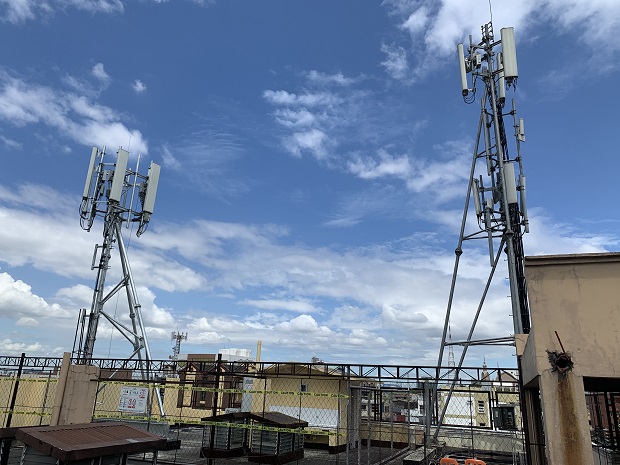The Department of Information and Communications Technology (DICT) said it recently launched an online portal for common tower registration. The new system, the agency said, aims to automate the application procedure for registration of companies engaged in the business of establishing or operating common towers.

Under the online procedure, applicants must fill out the application form and attach the complete required documents at the ITC Registration Page. The procedure, list of complete documentary requirements, and information on how to qualify as a common tower provider can be found in the Common Tower Registration Portal.
In addition to its existing agreements with 24 common tower companies, the DICT has received letters of intent from 13 other tower companies. Around 70% of these tower companies are foreign-owned.
Meanwhile, the DICT said it is optimistic of a faster rollout of telecommunications towers as local government units (LGUs) have expressed their support in reducing permitting requirements and procedures for the construction of cell towers.
Last Aug. 11, Department of the Interior and Local Government (DILG) secretary Eduardo Año reported that 1,502 out of 1,930 pending applications for tower construction for the year 2020 in 55 provinces and 25 cities have already been approved by LGUs.
Año vowed to continuously monitor the remaining 428 pending applications to ensure their swift approval.
“This is a welcome development in our mission to improve Internet connectivity and access in our country. DICT is grateful to LGUs for their cooperation, and also to the DILG for their support in this endeavor,” said DICT secretary Gregorio B. Honasan II. “If this continues, then the Filipino people can expect a higher rate of ICT infrastructure rollout in the coming weeks and months.”
In an earlier initiative, the DICT, DILG, Anti-Red Tape Authority (ARTA), Department of Public Works and Highways (DPWH), Department of Human Settlements and Urban Development (DHSUD), Department of Transportation (DOTr), Civil Aviation Authority of the Philippines (CAAP), Department of Health (DOH), and the Food and Drug Administration (FDA), signed a Joint Memorandum Circular (JMC) streamlining requirements and reducing procedural delays in securing necessary permits, licenses, clearances, certificates, and other requirements in constructing common towers — reducing processing time from more than 200 days to around 16 days.
Under the JMC, agencies and LGUs are required to process, approve and issue permits within seven working days. This is also in accordance with Republic Act 11032 or the “Ease of Doing Business and Efficient Government Service Delivery Act of 2018”.
Permits and clearances not approved within the prescribed periods will be deemed automatically approved, as stipulated in Section 10 of R.A. 11032.
Recent news reports indicate Globe and Smart as already having about 20,000 towers combined. With Dito’s 1,300 towers in various stages of completion, and the DILG’s reported approval of 1,502 out of 1,930 pending applications for tower construction in 55 provinces and 25 cities, the reported figures add up to a potential of about 23,230 towers in 2020 between the three telcos combined, the DICT said.
From the 17,000 towers reported in February 2019 to the 23,230 towers by 2020, there is an increase of more than 6,000 towers mostly deployed by telcos. This increase, the DICT said, is a welcome development towards the additional 50,000 towers needed to adequately connect the entire country.
“With the Covid-19 pandemic hampering deployment and high capital costs for building common towers on their own, the telcos clearly need the independent tower sector as force multipliers in accelerating overall tower build in the different provinces, municipalities, and regions,” the DICT said.
According to recent reports, telco giant PLDT and its wireless unit Smart Communications are set to initially deploy about 200 cell sites pursuant to its agreements with several independent tower companies.
Also, Dito Telecommunity recently reported securing common tower agreements with common tower companies and putting-up 1,300 towers in various stages of completion.
“The common towers are proving their potential collectively as a pioneering sector in the telecommunications industry. With this initiative, we expect a more dynamic competition in the market that will ultimately benefit Internet and telecommunications consumers in the country,” Honasan said.




